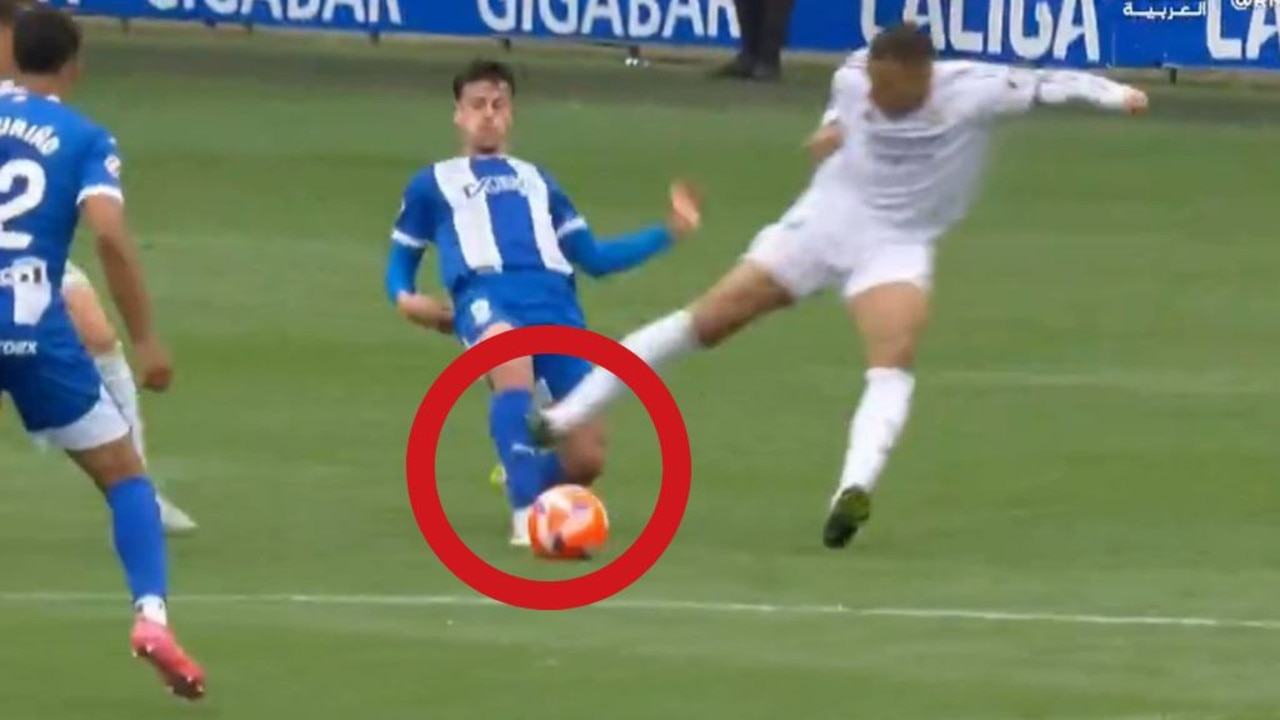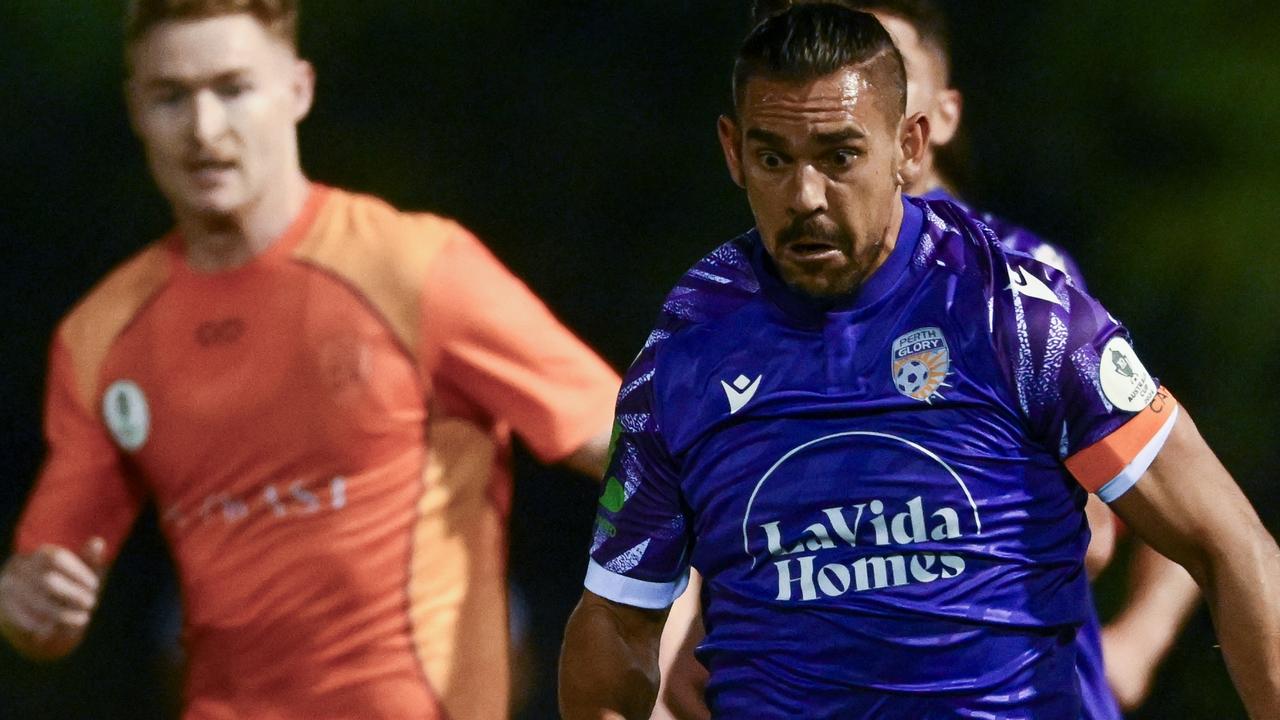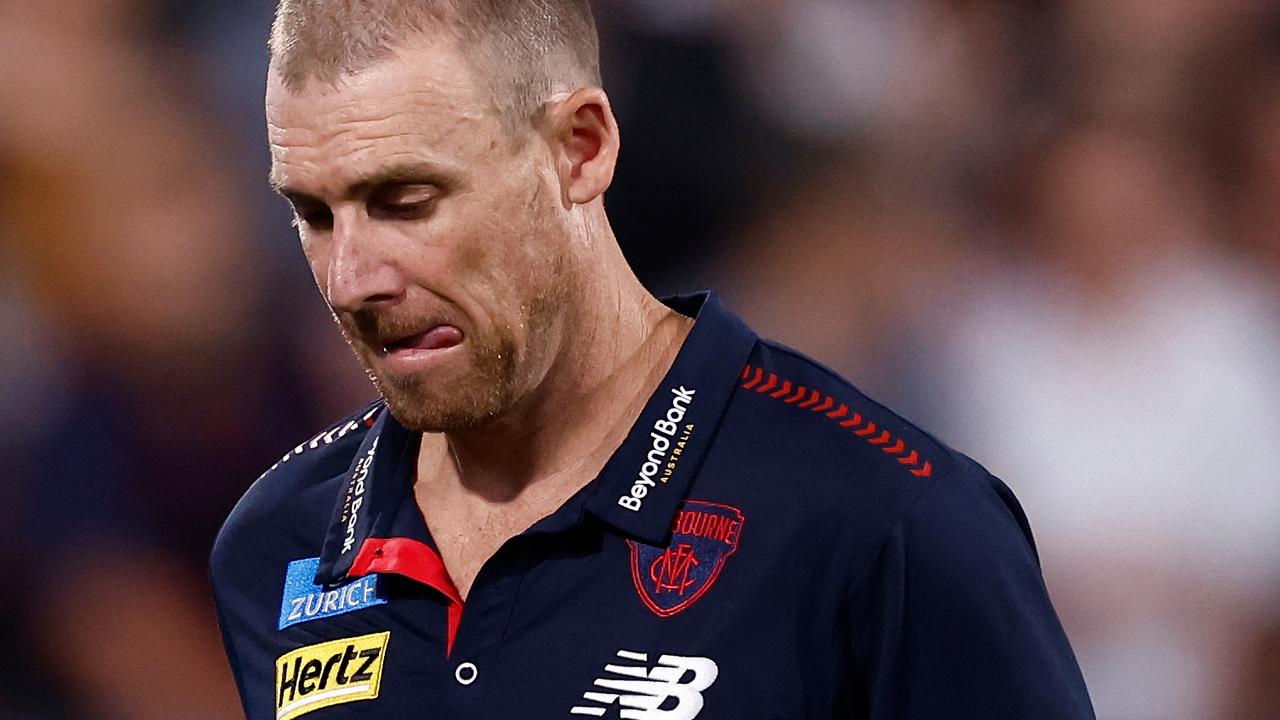Injured pole vaulter Liz Parnov already focusing on preparing for Tokyo Olympic Games
THE best part of a nightmare is waking up to the sheer relief that the events in your head were only fantasy. Liz Parnov is not that lucky.
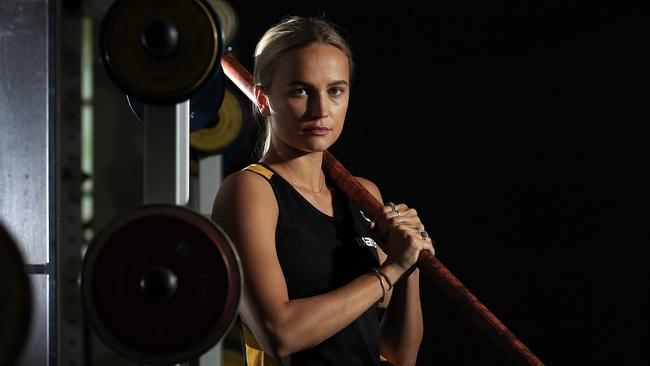
THE best part of a nightmare is waking up to the sheer relief that the events in your head were only fantasy.
Liz Parnov is not that lucky.
In the immediate aftermath of last month’s horror training fall that led to a broken right leg, the pole vaulter’s Rio dreams were replaced by repetitive visions of the fateful jump that shook her world.
“The first week or so, I was having nightmares where I would re-live it in my sleep,” Parnov said. “The moment I fell, my leg would twitch and it would wake me up.
“I’d wake up and I’d be like, ‘Oh my god, when is this going to end?’
“I’m lying on my back for another 12 hours, I can’t get up… It was hard and it made me really upset.
“That first week, I was really unmotivated. It was more heartbreaking than anything. It’s not just a job, it’s my passion. It’s my life.
“To have everything one day and then the next day, nothing. It’s just really hard to get your head around.’’
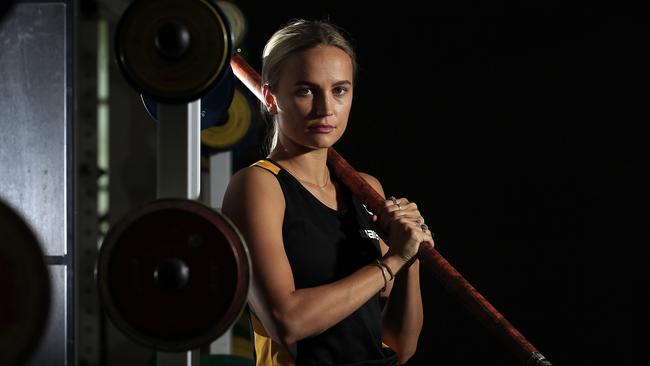
A month on from the moment that changed everything, Parnov has not only come to terms with the situation, but is already embracing the challenge of a competitive comeback from the top down.
It starts with the head, and a mindset that focuses less on the fact she’ll miss Rio and more on the opportunity to get the jump on preparing for Tokyo’s 2020 Games.
It then filters down to the upper body, which is being strengthened through rigorous workouts four days a week at the WA Institute of Sport’s Mt Claremont base.
Eventually, the 21-year-old’s surgically-repaired tibia – complete with inserted plate – will be strong enough from extensive rehabilitation to enable a return to full fitness and the opportunity to leap over the bar once more.
Plenty of others would be giving training a wide berth for at least a few weeks in the wake of a crippling career blow.
For Parnov, it’s part of the healing process.
“Everyone’s said they’re really surprised at how eager I am to get back into it,” she said.
“I guess it’s just how I’ve always been – I don’t really like to sook or feel sorry for myself. I want to seize my opportunities and career with both hands, so I’m not going to waste days or weeks or months when I have other things I can be doing.
“I had so much time to think (post-surgery) and it was making me upset, and moving around and getting back into it makes me feel better.

“I could sit at home for a month and dwell on the situation and eat ice-cream. But it would make it that much harder for me to get back.
“Sure, being here at WAIS sometimes is hard. When the girls are jumping and training, I just get frustrated because I want to be doing what they’re doing.
“If it wasn’t upsetting me, though, then I’d really question how important it is.”
Parnov looks like any other athlete in full Rio preparation mode as she rubs shoulders with the likes of javelin star Kim Mickle in the WAIS gym. Chin-ups, bench press and medicine ball exercises are among the regular drills, as is arm ergo, which Parnov describes as “hell”.
The thing that sets the recovering pole vaulter apart from the others, besides her crutches and sizeable leg brace, is the sight of her being ferried between each piece of equipment in a wheeled office chair pushed by her coach and father, Alex.
The long-time sporting mentor now balances his time helping Liz recover and overseeing another daughter, Vicky, Nina Kennedy and Emma Philippe as they strive to book their own Olympic berths.
“With Liz, there’s always been extra pressure on me because she’s not only my athlete, but my daughter,” he said.
“It’s been very hard for me as a coach because I’m responsible for everything that happens. I’m just trying to help her as much as I can.

“I know the hard yards she put into this preparation. It’s not just the pain of the injury – it’s the pain from inside.”
She still has her bad days, but Parnov’s physical and mental pain continues to ease. She now has a 75-degree range of motion in her knee and is savouring each small step, including being allowed to stand at waist height in the pool and shuffle along in the water. In around a fortnight, she’s hoping to be walking unaided on dry land.
The Russian-born star has also been lifted by a wave of support from family, friends, and well-wishers from strangers on social media, all desperate to see her earn another taste of Olympic competition after heading to London as an 18-year-old in 2012.
Parnov acknowledges she’s emotionally matured through the ordeal, learning the importance of grasping every opportunity and relishing the arduous task ahead.
It’s all part of the progression of replacing the nightmares with a satisfying night’s sleep.
“I love a challenge. Not many people get this chance. I can build from the beginning,” she said.
“I want to make sure when Tokyo comes around, I’m a different athlete altogether.
“It’s made me want to seize every chance I get, whereas previously, I think I had a bit of an easy-come, easy-go mentality where I was like ‘Oh, it’ll happen, it’ll be my time’.
“Now, I don’t want to leave it up to chance. I want to go to sleep at night knowing I’ve done everything I possibly can.”
Originally published as Injured pole vaulter Liz Parnov already focusing on preparing for Tokyo Olympic Games

